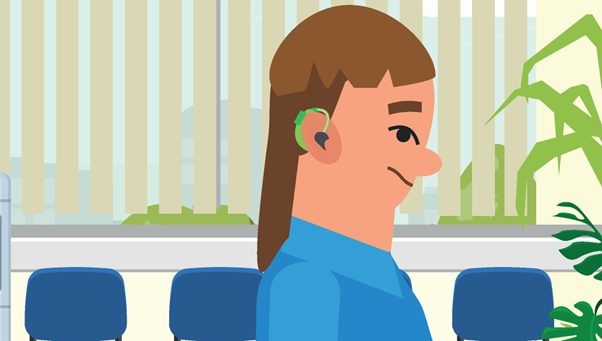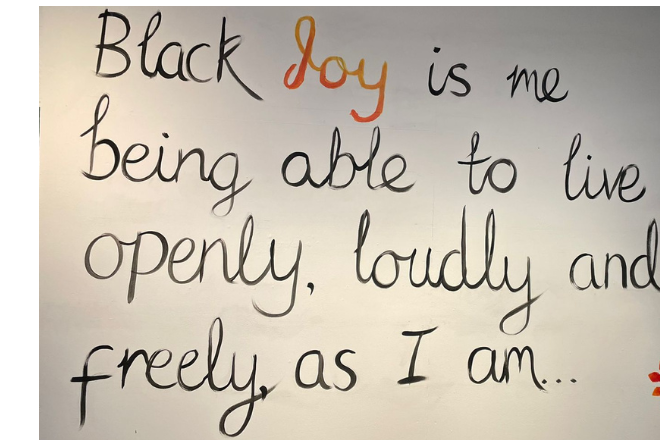
Co-Production Collective Community member, and ex-staff team member Chloe talks about the role of co-production in commissioning from her experience of becoming a Commissioner.
When I started my new role in the world of commissioning, I was keen to embed co-production in my practice.
As someone who has spent most of their career working in co-production, the relationship between co-production and commissioning has long been a fascination of mine.
Outside of my professional roles, being an autistic ADHDer with long-term physical and mental health conditions, I have worked with commissioners to embed lived experience into their workstreams. So, I knew that lived experience input was something that there was a hunger for, but I have always found commissioning to be shrouded in mystery.
Commissioners’ reputation
Before I began doing any “lived experience work” and actually worked directly with commissioners, their reputation preceded them. They were lauded by others as the “big dogs”, omnipotent beings who hold life-changing decisions in their hands, people who can callously change someone’s life with the click of a button on their laptops.
I heard whispers within the co-production community that commissioners were resistant to the idea of co-production: they want all the power, they don’t “buy in” to co-production, they believe it’s not an efficient use of time or resources. Eyebrows were raised when I shared that I was moving to a role in commissioning. Years ago, one of my old manager’s even proclaimed during a training session that “all commissioners must be sociopaths”. Whilst this is a stigmatising term that I do not subscribe to, he was alluding to the view that to make difficult decisions which directly impact people’s lives, you must lack a “normal” moral compass and emotional connection.
This could not be further from the truth.
Humanity is at the heart of commissioning
At the heart of commissioning is humanity. There is an impetus to go out into communities and speak to those whom your decisions impact to work with them rather than do to them. Commissioning isn’t about taking a paternalistic perspective of assuming that we know what is best for people; it’s about genuine engagement with them, hearing it from them, forming human connections, forging relationships.
In fact, the Co-Production Collective’s co-created values could be seen to embody what commissioning is about: being inclusive, transparent, kind, embracing of change, and reflective.
But this isn’t where it starts and ends. Co-production in commissioning is not only about hearing from the people whom your decisions impact, it is about truly valuing what they have to say and using this to make a demonstrable difference. It is about seeing people as people, not just as statistics or a homogenous group.
Co-production as the “gold standard"?
Whilst I could not be a bigger advocate of co-production, I believe that hailing it as the “gold standard” does a disservice to it. Co-production can be great - but it’s only great when it’s done well, authentically, and kindly. The “co-production or nothing” attitude that is prevalent in many organisations leads to tick box co-production, done in an inauthentic, tokenistic way just because co-production is mandated.

Arnstein’s Ladder of Citizen Participation puts participatory approaches into a hierarchy, placing co-production at the top. Co-production is about turning hierarchy on its head, so this hierarchical representation of it feels at odds with it. There’s no shame in using other participatory approaches, just call it what it is.
This transparency is so important in commissioning. Many people who use services are distrustful of professionals, including commissioners - and understandably so. All too often, they’ve been let down and had promises broken. I know this all too well as someone with chronic health conditions. As commissioners, it is our responsibility to do what we can to ensure that the engagement work we do is ethical. Promising co-production when you’re in fact sending out a survey that hasn’t been co-created can add yet another layer of iatrogenic trauma (trauma caused by services). We owe it to the people we work with to be open, honest, and accountable with regards to engagement.
There may be times when co-production just is not possible - and that’s okay. Co-production involves working with people from the beginning of a project, but we all know how life pans out; people change jobs and begin projects that are at varying levels of completion. If you’ve picked up a piece of work after the beginning of it has already been and gone, then there is still value in doing engagement work, even if co-production isn’t realistic. The attitude of “co-production or nothing” fails to account for the value in other methods of engaging. A robust consultation that is transparent about being a consultation is better than what the co-production community has coined “faux-production”, which means incorrectly claiming something is co-production when it’s another way of engaging (or not engaging).
Embedding lived experience
The importance of embedding lived experience in all levels of an organisation should not be underestimated. It is not enough to simply have a lived experience advisory group to merely advise. People with lived experience should be involved in making key decisions alongside senior leaders: shaping strategy, informing service design, highlighting community priorities. Whilst having organisations bear witness to someone’s trauma can sometimes be cathartic for that person, utilising lived experience isn’t just about “trauma porn” - it is about valuing what the person has to say and using their experiences to make changes in a non-exploitative way.
My interest in this area has led me to enrol on an upcoming development programme for commissioners, Commissioning with Communities, delivered by the Co-Production Collective, Collaborate CIC, and Ideas Alliance. I have high hopes that this course will enrich my understanding of how to work with communities in a commissioning context, consolidate my understanding of co-production, and give me greater insight into applying theory to practice.
Ultimately, authentic co-production should always be on commissioners’ minds as something to strive for. It must be done with different people’s needs in mind, being as welcoming, inclusive, and supportive as possible. Genuine engagement can be time-consuming but it pays off and using lived experience to inform our work is invaluable.
Please note, my views do not necessarily represent the views of any organisations I'm affiliated with.
Photo Credit: Nick Fewings: Unsplash




.png)
.jpg)


.png)
.png)

.png)

.png)